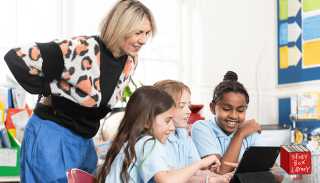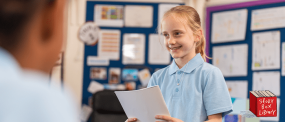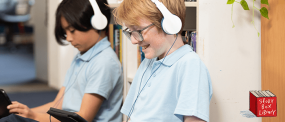- Your School Type
- Solutions
- Resources
- Blog
- Events
- More
- Contact Us
- Book a Demo
- Get a Quote

We're thrilled to feature this guest blog post written by the Communications Team from Story Box Library.
All children should have access to high-quality and accessible literature, and it’s important to get them engaged with reading from a young age. Reading and storytelling out aloud helps build important language and social skills, empathy and understanding for others, and even foster a sense of inclusion and diversity.
Teaching kids valuable skills in an accessible and engaging format can be achieved by educators, mentors and even local public librarians, via a range of storytelling devices.
Reading stories out aloud is key to a child’s literacy, language and even social development, regardless of age, learning level or background. When stories are read aloud, children learn important visual and social cues, and can engage more effectively in the narratives, characters and themes. Combining traditional storytelling methods with digital platforms can enhance the experience, promoting better text engagement, in early childhood education and beyond.
Developing a child’s literacy skills can also be achieved through fun and interactive storytelling experiences. In addition, for children for whom English is not the primary language spoken at home, or for those who may be Deaf or hard of hearing, visual cues assist with English language development and literacy skills.

Stories can help educators and parents tackle challenging topics, such as mental health and emotional wellbeing. Showing children it’s okay to be a little shy, but curious and brave in the world, picture books about anxiety, courage and overcoming challenges can help explore mental health themes.
Educators, parents and mentors can show kids how to cope with anxiety and stress, by reducing the stigma of anxiety and mental health challenges, and teaching strategies for resilience through storytelling. In addition, play and creativity can help children express themselves, and is proven to assist mental, social and physical wellbeing.
Not only does the Australian curriculum have diversity policies within education at all levels, recent research suggests that children’s literature is overwhelmingly homogenous, pointing towards an active need for more diverse books for children. Educators, parents, carers and librarians can work towards building upon existing book collections, and finding more diversity in stories.
Discover a world of over 450 diverse stories on Story Box Library.
